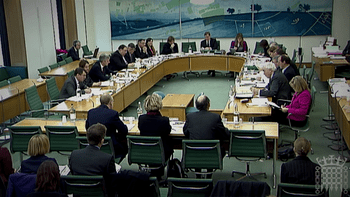By Gavin Mackitnosh
The parliamentary education committee has launched an inquiry into the impact of COVID-19 on education and children’s services. The committee is investigating the impact on “all aspects of the education sector and children’s social care system, and will scrutinise how the Department for Education is dealing with the situation”.
MPs are specifically examining the implementation of the critical workers policy, including “how consistently the definition of ‘critical’ work is being applied across the country and how schools are supported to remain open for children of critical workers”.
They have also expressed concern in relation to the effect of cancelling formal exams, including the fairness of qualifications awarded and pupils progression to the next stage of education or employment will also be investigated along with the support for pupils and families during closures, particularly disadvantaged groups.
The Committee says they want to ensure the best interest of hardworking pupils and students who are facing such an uncertain future. They also mention a ”disproportionate” and ”potentially devastating impact” that the steps put in place to fight this virus will have on most vulnerable children and young people.
The disadvantaged, those with special educational needs and disabilities and those who rely on children’s social care services are high among the concerns of the Committee.
QUESTIONS
The Committee yesterday wrote to the Department for Education, seeking answers to some pressing questions. They want to know how consistently the definition of ‘critical’ work is being applied across the country and how schools are supported to remain open for children of critical workers.
They are also inquiring about the capacity of children’s services to support vulnerable children and young people, and how the early years sector, including reference to the early years funded entitlement and the childcare market will affect them. One question put to the Department Of Education is how quickly updates on resources which will help schools and families continue their children’s education away from school can be expected.
The investigation will also closely examine the effect of cancelling formal exams, including the fairness of qualifications awarded and pupils’ progression to the next stage of education or employment. Also to be investigated is the support for pupils and families during closures, including the consistency of messaging from schools and further and higher education providers on remote learning.
CHILDREN’S SOCIAL CARE
Also of importance is what the Department doing to ensure the children’s social care system can meet the increased pressure it will likely now face?
The Committee is also examining children’s and young people’s mental health and safety outside of the structure and oversight of in-person education. The effect on apprenticeships and other workplace-based education courses.
The financial implications of closures for providers (including higher education and independent training providers), pupils and families. The effect on disadvantaged groups, including the Department’s approach to free school meals and the long-term impact on the most vulnerable groups (such as pupils with special educational needs and disabilities and children in need)
What contingency planning can be done to ensure the resilience of the sector in case of any future national emergency.
DISPROPORTIONATE
Also of importance to the Committee is what the Department Of Education doing to minimise the disproportionate effect these measures will have on disadvantaged groups? We are particularly concerned about the fairness of any grading system for children and young people who would have taken formal exams this year.
The Department Of Education referred The Eye Of Media.Com to its official position on the matter made last week, pointing out the plans set out to address the issue of exam grading. On other matters raised by the Parliamentary Committee, the Department said it would have ”nothing further to add”. Amongst them the options the department said was available to disappointed students will be that of ”sitting an exam early in the next academic year for students who wish to do so”
Apart from that is a process which will provide a calculated grade to each student which reflects their performance as fairly as possible to ensure its consistent application for all students. Predicted grades as a basis of the final grades for pupils does not seem to sit well with the Committee who have already indicated that they will provide a disproportionate outcome for disadvantaged students.
However, the Department Of Education said that the distribution of grades will follow a similar pattern to that in other years and not provide a disadvantage to anybody. ”Pupils who do not believe the correct process has been followed in their case they will be able to appeal”.
Image: Parliament.uk

